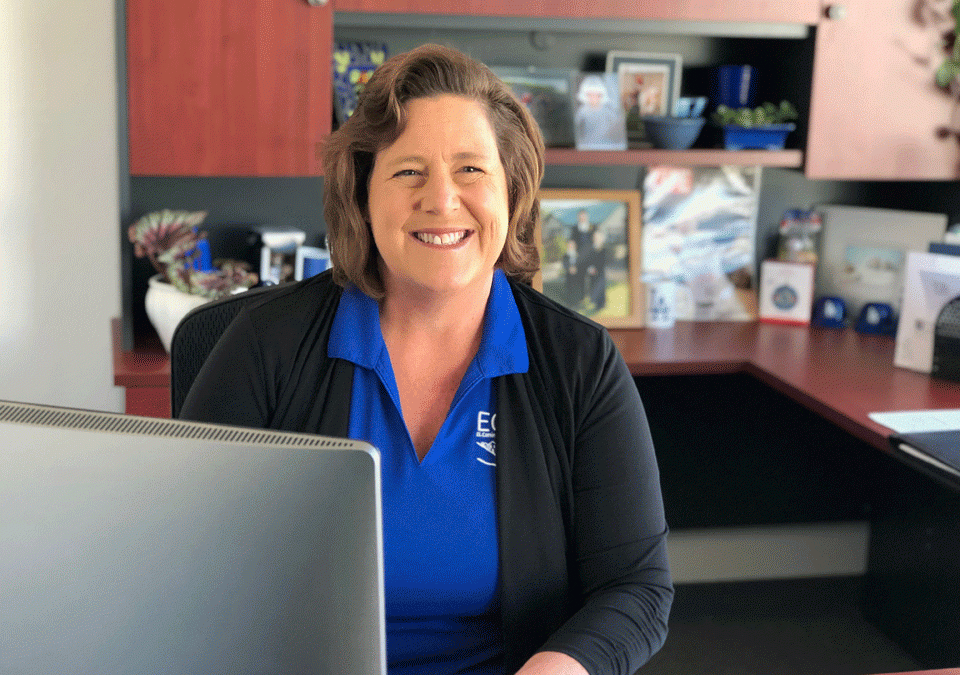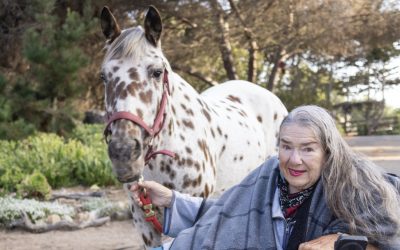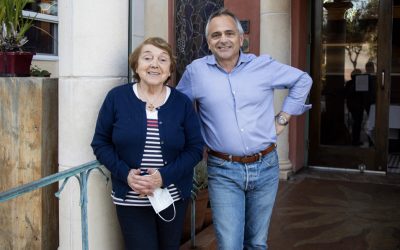Atascadero resident, Wendy Lewis, became the CEO/President of the El Camino Homeless Organization (ECHO) in February after spending 10 years working for the Food Bank Coalition of San Luis Obispo County. Lewis’ most recent position with the Food Bank Coalition was as Chief Operating Officer, but she started our her tenure there as the volunteer coordinator.
“At the Food Bank, you know you were helping a lot of people, but at the shelter you get to see that,” Lewis said.
“My Spanish wasn’t good enough for the position,” Lewis said about the first job she applied for at the Food Bank, adding that she worked in a variety of positions until she became the COO.
Lewis has been married to Joe for 26 years. They have two sons, now 24 and 22, and have lived in Atascadero for 22 years. Lewis herself grew up in Lompoc. “I came to attend Poly and met a local,” she said. Her husband grew up in San Luis Obispo. She majored in liberal studies and became a teacher. She had difficulty finding a job, so she got a side gig as a Pampered Chef consultant until she went to work at the Food Bank.
ECHO is in the business of helping people help themselves into permanent housing. The organization has been in existence since 2001, started by Atascadero residents Mike and Charlotte Byrne. ECHO is the only shelter in the North County, the only other is Prado 40 in San Luis Obispo, which has 110 beds. “Our services are countywide,” Lewis said. “We help anyone who fits our program. We [provide] emergency and transitional housing.”
When it first started, it rotated locations each month until it was able to use the First Baptist Church year-round. Several years ago, the nonprofit had the opportunity to purchase the church when the building went up for sale. Since buying that building, ECHO has been working to make the shelter more than just a place to spend the night.
“Even though we are a shelter, we provide a home, a home environment,” Lewis said. “It just happens to be home for 50 people.”
Every night at 4:30 p.m., ECHO opens its doors to serve dinner to an average of 80 people.
“In the evening, we offer a meal to anyone who is hungery,” Lewis said. “It’s kind of a way to show we care.”
Lewis added that some people partake in the free meal as a way to prevent homelessness because they are low-income and have a choice between buying food or paying a bill. Those who come for the meal only have to sign-in, no one has to prove that they are hungry. For those want to stay in the shelter, they meet with a case worker to see if they would be a fit for ECHO’s program.
“The case manager determines if they are a fit for our program,” Lewis said. “They have to be drug- and alcohol-free and be ready to do a lot of hard work.”
If the person is a fit for the program and there is an open bed, he or she meets with the caseworker again to set a plan. Lewis said that new residents are given five days to settle in and catch up on sleep before jumping into the plan.
“[The case workers] really try to fit the needs of that person,” Lewis said about the plan that is put together for each person, adding that each person and situation is unique, so each plan is as well. The ultimate goal of the program, Lewis said, is to get each person into permanent housing. For some people that includes getting a job, staying drug- or alcohol-free, getting higher paying work or just getting back on their feet after a crisis.
In the first nine months of 2018, Lewis said that 95 people successfully graduated from the program. The program lasts 90 days, but each person or family group can get up to three one-month extensions. The nonprofit relies on donations from individuals, other nonprofits and businesses to allow ECHO to help even more people. The nightly meal is provided and served by local organizations, businesses and individuals.
Lewis said that there is a waiting list of groups to provide the meal. Each group has a certain night each month, such as the third Friday of the month, so the commitment is minimal but continual. To find out how you can help, go to echoshelter.org.
Lewis said that the nonprofit is working toward offering more resources for its residents to give them the best chance at success.
One way the organization plans to do that is by opening up the shelter during the day to provide job training and other resources. The shelter’s current hours are 4:30 p.m. to 7 a.m., which are also part of the conditional use permit attached to its permit to operate.





